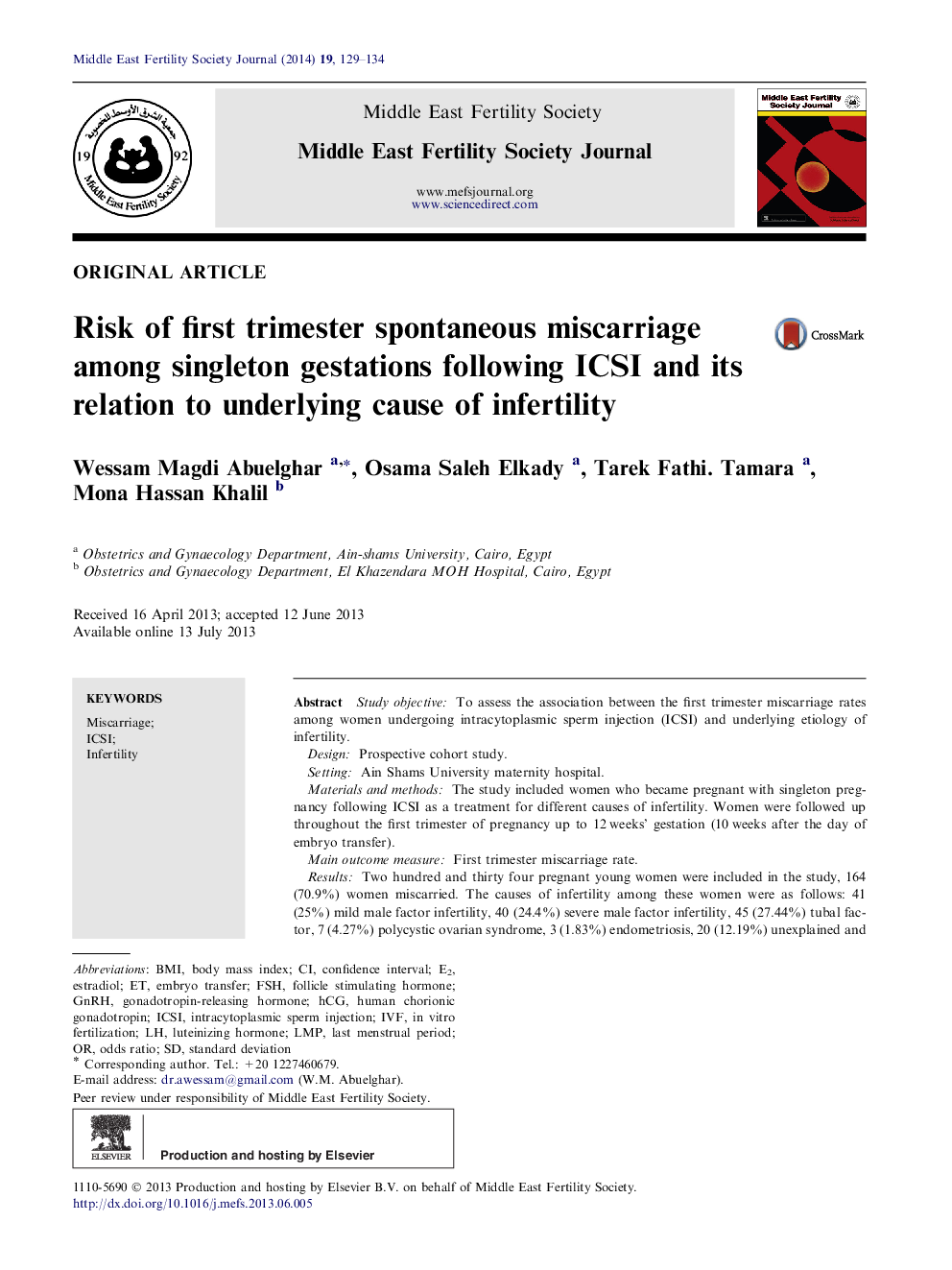| Article ID | Journal | Published Year | Pages | File Type |
|---|---|---|---|---|
| 3966176 | Middle East Fertility Society Journal | 2014 | 6 Pages |
Study objectiveTo assess the association between the first trimester miscarriage rates among women undergoing intracytoplasmic sperm injection (ICSI) and underlying etiology of infertility.DesignProspective cohort study.SettingAin Shams University maternity hospital.Materials and methodsThe study included women who became pregnant with singleton pregnancy following ICSI as a treatment for different causes of infertility. Women were followed up throughout the first trimester of pregnancy up to 12 weeks’ gestation (10 weeks after the day of embryo transfer).Main outcome measureFirst trimester miscarriage rate.ResultsTwo hundred and thirty four pregnant young women were included in the study, 164 (70.9%) women miscarried. The causes of infertility among these women were as follows: 41 (25%) mild male factor infertility, 40 (24.4%) severe male factor infertility, 45 (27.44%) tubal factor, 7 (4.27%) polycystic ovarian syndrome, 3 (1.83%) endometriosis, 20 (12.19%) unexplained and 8 (4.87%) multifactorial. Stepwise logistic multi-regression analysis showed that both maternal age (>31 years) and tubal block were the most sensitive discriminators for the prediction of first trimester spontaneous miscarriage among the study population (P < 0.01).Major conclusionsFirst trimester spontaneous miscarriage rates among pregnant women with singleton pregnancy following ICSI were related to maternal age >31 years and/or the presence of tubal block.
